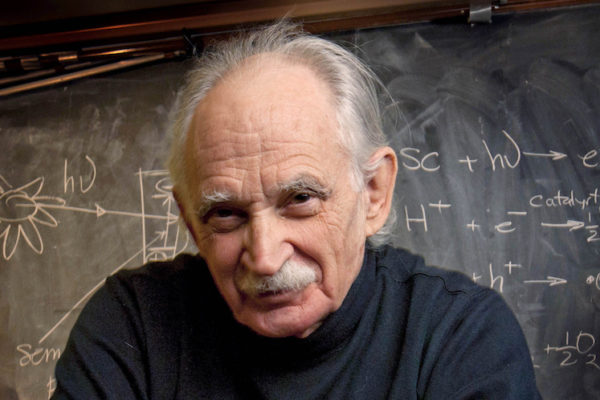AUSTIN, Texas – Allen Bard, a professor of chemistry at The University of Texas at Austin, was announced as the winner of the 2019 King Faisal International Prize in Science, which comes with $200,000 and a gold medal from the King Faisal Foundation. The major international award is given to individuals who have made outstanding contributions in physics, chemistry, biology or mathematics through original scientific research that brings “major benefits to humanity.”
The prize, which has been given annually since 1984, will be shared with fellow chemist Jean M.J. Fréchet of King Abdullah University of Science and Technology.
Over the years Bard has made significant contributions to basic research, technological innovation and generations of scientists, to whom he is known as the “father of modern electrochemistry.” His work in electrochemistry has spurred in innovations in medicine and energy. In his more than 50 years of service at UT Austin, Bard has led fundamental research and nurtured in others a fascination with using electrochemistry and light to better understand complex chemical systems. This has inspired a range of futuristic-sounding applications, from self-cleaning glass to pollutants that decompose when exposed to light. New highly sensitive clinical tests have also resulted.
As the developer of the scanning electrochemical microscope, Bard invented a technology that has been used for everything from finding cancer cells to improving batteries. In a statement, the King Faisal Foundation indicated Bard was selected for this year’s prize “for his groundbreaking development of electro-generated chemiluminescence methods, currently employed as bioanalytical tools, and the realization of scanning electrochemical microscopy.”
Bard joined the faculty in 1958 after having received a B.S. in chemistry from the City College of New York and a Ph.D. in chemistry from Harvard University. He holds the Norman Hackerman-Welch Regents Chair in Chemistry and is the director of the Center for Electrochemistry. An author on more than 1,000 peer-reviewed research publications, as well as scientific books and book chapters, he holds nearly 30 patents, and he is the recipient of numerous awards, including the Wolf Prize, the Fermi Award and a National Medal of Science.




